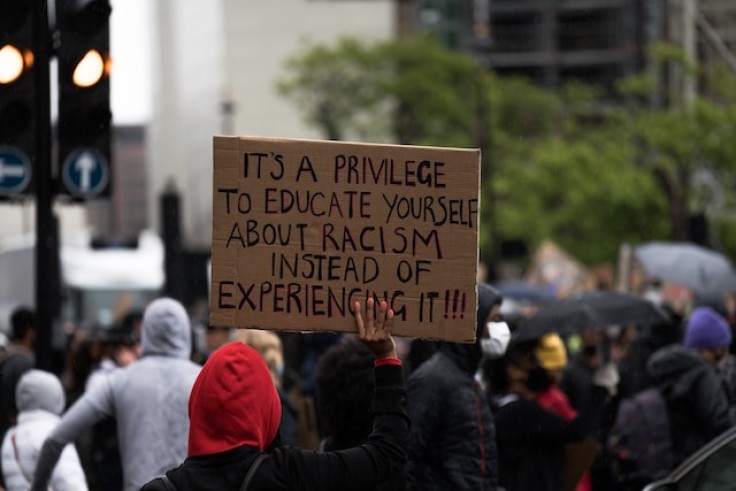
In a recent complaint filed on June 12, two Ohio moms, Amy Gonzalez and Andrea Gross, accused Columbus Academy of launching a bullying campaign against them and their children. According to FOX News, the parents claim that their efforts to address concerns about left-wing bias in the school's curriculum and fiduciary compliance matters were met with harsh retaliation from the administration, including the denial of re-enrollment for their children.
Re-Enrollment Denied to Children of Ohio Moms Exposing Curriculum Concerns
Gonzalez and Gross revealed that their requests for transparency were met with an overreaction from the school, which went as far as calling the police on them and alerting nearly 900 faculty members that the FBI had been notified, branding the parents as "dangerous." The moms expressed bewilderment at such extreme measures, questioning the motives behind the administration's actions. According to Gross, the alleged retaliation campaign had severe consequences, causing their community to turn against them. The hostile atmosphere became so overwhelming that Gross's daughter had to leave the state and enroll in another school.
The complaint filed in the Court of Common Pleas in Franklin County not only addresses the alleged retaliation but also sheds light on the school environment, which the moms claim was hostile towards conservative students. They assert that critical race theory was taught, which they perceived as indoctrination, with politically charged issues being discussed without presenting opposing viewpoints. Additionally, the complaint states that the school did not provide equal inclusion to Latino students, a matter of particular concern for Gonzalez, whose daughter is Latina.
In response to their concerns, the moms released a public letter highlighting incidents of intimidation and bullying based on political beliefs. However, the complaint states that the school's head of security filed a false police report against the parents with the Gahanna Police Department, followed by the school notifying faculty that the moms had been reported to the FBI.
The school vehemently denied all the allegations, declaring them to be without any legal merit or factual basis. Columbus Academy also referred to an earlier statement, stating that any parent who waged a public campaign of false and harmful statements would be in violation of the Enrollment Agreement and denied re-enrollment. The actions taken by the school and its affiliates, as alleged in the complaint, had a significant impact on the well-being of the plaintiffs. The parents claim that the school falsely labeled them as dangerous, thereby tarnishing their reputations among colleagues and acquaintances with whom they had spent years working and learning.
Read Also : 2-Year-Old Ohio Boy's Gun Access Ends in Fatal Shooting of Pregnant Mother, Unborn Brother
Damage to Reputations: Parents Claim Unfair Labeling as Dangerous to Community
The incident involving Columbus Academy adds to the ongoing national debate surrounding critical race theory and parental concerns over the education system. Parents across the country have increasingly voiced their opposition to the teaching of critical race theory, sparking contentious discussions on the appropriate content and approach in classrooms. As the complaint seeks compensation for damages, the legal battle between the moms and Columbus Academy will likely shed further light on the contentious issue and its implications for educational institutions nationwide.
Critics argue that critical race theory promotes division and a distorted view of history, while supporters believe it is a necessary tool to address systemic racism and promote inclusivity. The clash of perspectives has fueled intense debates, not only among parents but also within academic and political circles. The case of Columbus Academy raises questions about how schools should handle dissenting views and whether their responses crossed the line into intimidation and retribution. The involvement of law enforcement and federal agencies, as alleged in the complaint, adds another layer of complexity to the controversy.
While the school maintains that its actions were justified, the moms are determined to seek justice and hold Columbus Academy accountable for what they perceive as an unjust and damaging campaign against them and their children. The outcome of this legal battle will undoubtedly have broader implications for schools nationwide, as it touches on issues of free speech, academic freedom, and parental rights. It highlights the delicate balance schools must strike between fostering an inclusive learning environment and respecting diverse perspectives.
As the case unfolds, it will likely fuel further discussions on critical race theory and its role in shaping the education system. The voices of concerned parents like Gonzalez and Gross will continue to echo in the ongoing debate, bringing attention to the need for transparency, dialogue, and mutual respect within schools. In the end, the resolution of this dispute will have ramifications far beyond the boundaries of Columbus Academy, as it has become a focal point in the nationwide discourse on critical race theory and the future of education.
Related Article : University of Wyoming's Kappa Kappa Gamma Sorority Lawsuit Challenges House Rules on Transgender Women's Inclusion